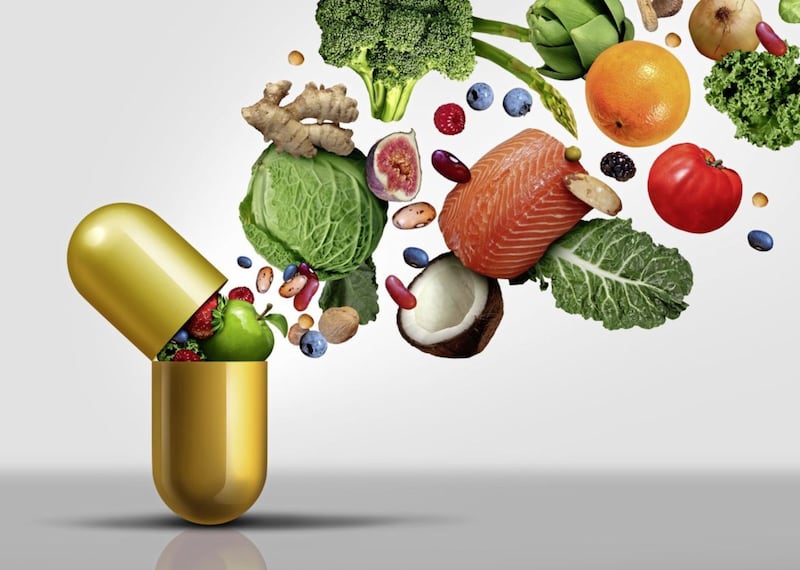Do you take a multi-vitamin? Are you religious about your cod liver oil? Or do you rely on diet alone to give you all the nutrition that you need?
The variety of nutritional supplements on offer can be overwhelming. How do you know what to take? Do you get what you pay for, or are supermarket brands good enough?
Let me answer some of these questions, to help you make an informed choice, rather than hitting the health food shop and coming home with too many products that you don’t really need.
Do I need to take a nutritional supplement?
When you consider that the levels of micronutrients in our diets have declined by up to 55% since the 1940s and that many of us have nutritional gaps in our diet, I think it is definitely worth taking nutritional supplements if you strive to be as healthy as can be.
Some people are at increased risk of a low intake of nutrients:
- If you eat a diet containing ultra processed foods (breakfast cereals count here too...)
- If you have a chronic health condition
- If you take medication
- If you are older
- If you have digestive issues that may affect you ability to absorb nutrients
Carefully choosing a couple of good quality and effective supplements, based on your unique needs, could add a little more life to your years. Think of this as a form of health insurance.
For most of us, taking a decent multi-nutrient, vitamin D in the winter months and a good omega 3 supplement is a good place to start.

Carefully choosing a couple of good quality and effective supplements, based on your unique needs, could add a little more life to your years. Think of this as a form of health insurance
What if I am taking medication?
Some medications can interfere with nutrient absorption, so a decent multi-nutrient is safe for most people to take and will help bridge these gaps, but be aware that there are lots of drug-nutrient interactions between common medications and nutritional supplements, so always check with your GP or a qualified nutritionist to be sure you are taking what is appropriate for your needs.
For example if you are taking aspirin, skip vitamin E, omega supplements and turmeric. Avoid things like St John’s wort and 5HTP if you take mood-modifying medication.
Are supermarket supplements any good?
Read the labels and you are likely to find sugar or glucose syrup, aspartame, fillers, binders and even talc listed on the ingredients list of some supplements. Not good.
The form of nutrients that are used in these supplements tend to be less well absorbed too. You might find ingredients like iron oxide or calcium carbonate, where better supplements would use forms of minerals that are much better absorbed, like citrates or ascorbates, for example.
How do I know my supplement is any good?
Start reading the labels.
You really do get what you pay for when it comes to nutritional supplements, although this does not mean that you have to spend a fortune to get a decent product. Brands like Viridian Nutrition, Wild Nutrition, Terranova, Biocare and many more are striving to create high quality supplements, made with natural ingredients without fillers, binders or other nonsense ingredients.
These companies invest in research and development and produce supplements based on peer-reviewed studies that are formulated by clinical nutritionists. They make supplements containing effective ingredients at the right dose to make a difference and some of them (like Viridian Nutrition) invest in ethical charities, support local and do not use ingredients that are tested on animals.
So step away from the supermarket own brand junk supplements and take a trip to your local, independent health food shop where you will find good quality supplements, and get talking to the staff who are likely to be highly trained and can help guide you to the most suitable supplements to match your unique needs.






